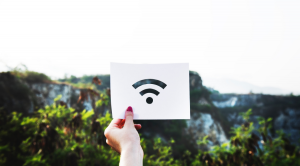What to do when you accidentally get a virus
First and foremost, it is essential to ensure the security of your online presence, while keeping any personal and sensitive information closely guarded from falling into the wrong hands. unwanted person. Self-control and alertness are important keys to facing this challenge.
Immediate steps to protect your online privacy
1. Checking the information you've shared online is an important step in protecting your privacy. Check all of your public online accounts and make corrections or deletions of personal information such as location, phone number, or any other personally identifiable information.
2.Being mindful of your privacy when posting is another way to protect your personal information. Avoid tagging locations in social media posts or tagging them after you leave to avoid unwanted tracking. If possible, limit linking your social media accounts together. Be careful to control who can see your posts and remove metadata from images before sharing them.
3.Monitoring your online presence requires vigilance. Use a tool like Google Alerts to monitor your name and address, as well as any comments that could affect your reputation. It's important to be wary of scams, especially if you're just becoming famous, as there's a risk of being taken advantage of through fake endorsements, fraudulent sponsorships or dishonest business opportunities. Be careful with who you trust and don't share personal or financial information with anyone you don't know.
4.Also consider small cosmetic changes such as a haircut, sunglasses, or clothing that respects privacy. Update and create strong passwords for all your online accounts, avoid using the same password across multiple accounts, and use multi-factor authentication for added security.
5.Finally, update the privacy settings on your social media accounts, making sure they are set to private and only allowing people you trust to follow you. This will help limit the number of people who can access your personal information.










